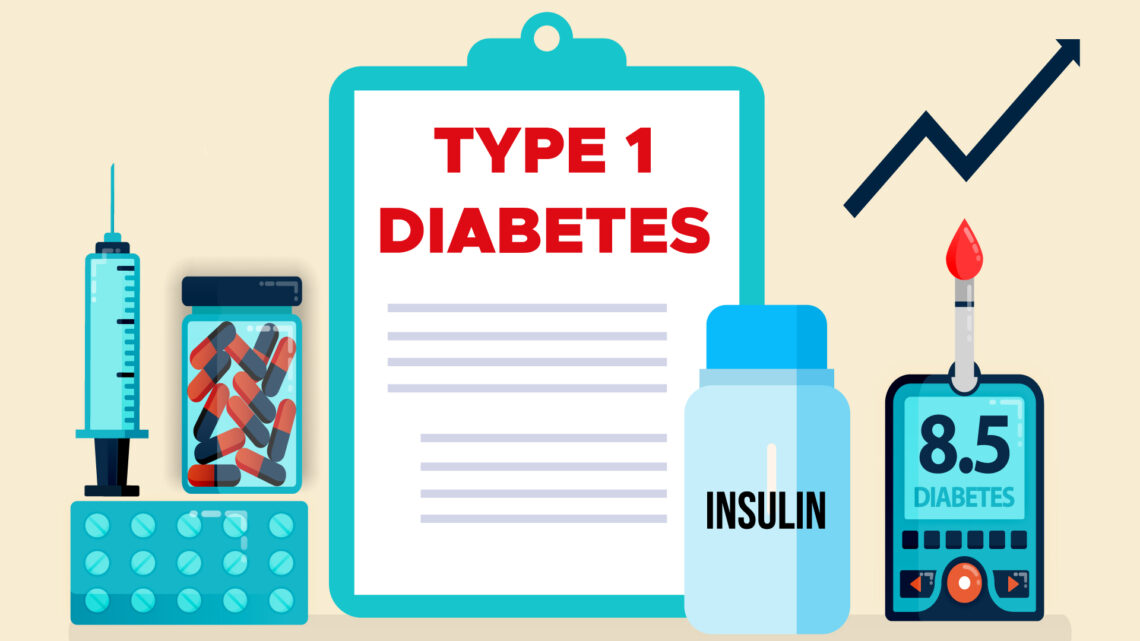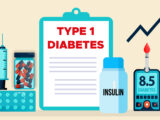
Etiology of type 1 diabetes And Its Symptoms
June 22, 2023Etiology of type 1 diabetes
Diabetes type 1 remains a chronic illness sometimes referred to as juvenile diabetes and diabetes that is insulin-dependent.
The organ known as the pancreas produces barely any insulin in this situation. Insulin is a chemical that the body utilizes to let sugar, or glucose, get into cells, which may be used to make energy.
The signs
Symptoms of type 1 diabetes can show up abruptly and include:
- More than normal thirst
- A lot of urination
- Children that have never soaked their bed at night develop bedwetting
- Shedding pounds without trying
- Experiencing irritability or other mood swings
- Being worn out and fragile
- Having vision haze
Why Does Type 1 Diabetes Occur?
The body mistakenly attacks itself is considered to be the etiology of type 1 diabetes. The beta cells, which produce insulin within the pancreas, are destroyed by this process.
Before signs show, this process might continue for months or even years. Thanks to insulin, the body’s cells may make energy when glucose from meals enters them.
When glucose is unable to access these cells, then hyperglycemia, a condition in which too much sugar builds up in the blood, occurs. It will eventually harm every part of the body.
Additionally, the body won’t have enough glucose for the cells to operate normally, which might cause weariness and other problems.
Type 1 diabetes is not avoidable by lifestyle decisions. However, type 2 diabetes can be prevented. There is no treatment for the condition, although there are techniques to control it.
Risk elements
Depending on the kind of diabetes, different risk factors apply. Family history could be significant. Geographical location and environmental variables can increase the incidence of diabetes with type 1.
Testing for diabetes cells from the immune system (autoantibodies) in relatives with a history of type 1 diabetes is occasionally conducted. You run a higher chance of getting type 1 diabetes when you have specific autoantibodies.
However, not everybody with these autoantibodies goes on to acquire diabetes. The likelihood of type 2 diabetes can also rise, depending on your ethnic background or race.
Some people are more at risk than others, including American Indians, Black, and Asian Americans. However, it is unknown why.
How does type 1 diabetes develop?
Type 1 diabetes has no known specific etiology as of yet. Given that it can pass down in families, it might be caused by hereditary factors.
It could also happen as a result of viral exposure. When the immune system battles the virus, it begins to inappropriately attack normal cells, such as the pancreatic cells that make insulin.
Although some studies have looked at potential connections with access to environmental pollutants or specific dietary components, insufficient evidence supports these claims.
How can I manage my type 1 diabetes well?
It might be challenging to get a type 1 diabetes diagnosis. Nevertheless, in addition to taking insulin, you may effectively treat diabetes by
- learning how to control and keep an eye on your blood sugar levels
- Keeping a balanced diet and getting frequent checkups with your doctor, who will check your heart rate and renal function,
- getting your feet checked by a podiatrist for sores and other issues
- undergoing routine eye examinations with an eye doctor or optometrist
What occurs if individuals with diabetes who have type 1 are not given insulin?
In the absence of insulin, blood glucose levels rise. Dehydration results from the kidneys’ effort to remove the extra glucose via the urine.
To generate energy, the body consumes its fat stores, which causes the release of ketones, which are substances in the bloodstream. These ketone bodies build up if insulin infusions aren’t continuous.
If untreated, dehydration, elevated glucose, and ketone levels may prove fatal. Diabetic ketoacidosis (DKA) is the medical term for this ailment.








